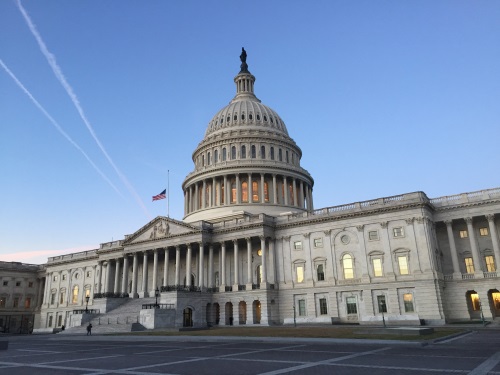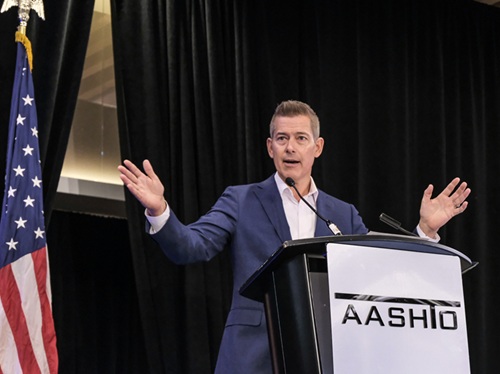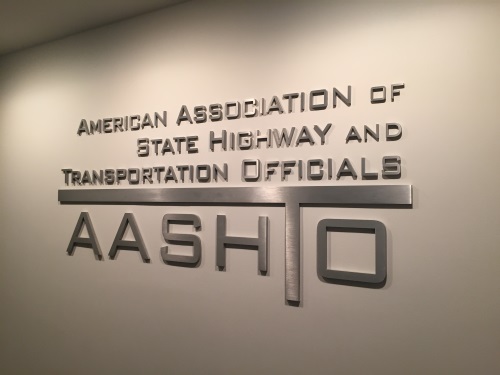In a March 10 letter sent to the Office of Management and Budget, the American Association of State Highway and Transportation Officials re-emphasized its concerns over implementation of new “Build America, Buy America” rules and the potential impact of those rules on critical infrastructure projects nationwide.
[Above image by AASHTO]
AASHTO’s letter offers comments on OMB’s notice of proposed rulemaking or NPRM issued February 9 to revise its guidance for grants and agreements in support implementation of the “Build America, Buy America” Act by noting that “AASHTO and the state DOTs strongly support the expansion of America’s manufacturing capacity in promoting domestic jobs and encouraging economic growth.”

The letter also notes that, “With the 2023 transportation construction season under way, there is already significant concern regarding the readiness of industry for the transition to the new ‘Buy America’ requirements for construction materials that went into effect in November 2022, including the potential for delays in the delivery of needed transportation projects in communities around the country.”
AASHTO said, “Thus, while we appreciate the additional guidance that is being proposed by OMB, AASHTO strongly opposes any expansion of the coverage of these requirements until further market-based research is conducted to determine the availability of American-made goods in the broad cross-section of materials already covered by the existing requirements.”

The group added that it expressed similar concerns in a June 2022 letter – co-signed by 13 other transportation organizations – to Mitch Landrieu, who serves as senior advisor for infrastructure coordination for President Biden.
“State transportation agencies continue to experience material and product delivery delays due to supply chain issues, material shortages, and worker shortages,” AASHTO emphasized. “Materials including aluminum, which is used in numerous products including light poles, mast arms, and sign panels; glass beads, which are used in retroreflective pavement markings; fiber optic cable; epoxy; and plastic pipe/conduit are already experiencing delivery delays and material shortages around the country.”
The organization also pointed out that the range of materials referenced within the law, along with the additional materials referenced in OMB’s proposed guidance, is extremely broad – including, in many cases, “niche materials” whose demand in transportation construction is not great enough to spur significant expansion of American industry.

“In some cases, manufacturing is restricted in this country due to environmental and other regulations,” AASHTO said. “And while AASHTO supports the expansion of American manufacturing capabilities, these ‘Buy America’ requirements will further disrupt supply chains and project construction schedules.”
Additional clarification is also needed to help distinguish between the various “Buy America” categories, as some “materials” could be interpreted as “manufactured products” and vice versa – meaning that “Buy America” regulations need to be clear that an item can only fall into one category.
“Currently, states are being left to interpret the categories and the distinctions between them, which will lead to inconsistencies and inefficiencies across the country with respect to implementation of the requirements,” AASHTO said. “Thus any changes proposed in the process or requirements should not be implemented until at least the 2024 construction season [or] possibly later.”
 Top Stories
Top Stories
BASICS Act Could Affect State Transportation Funding Flows
February 20, 2026 Top Stories
Top Stories

